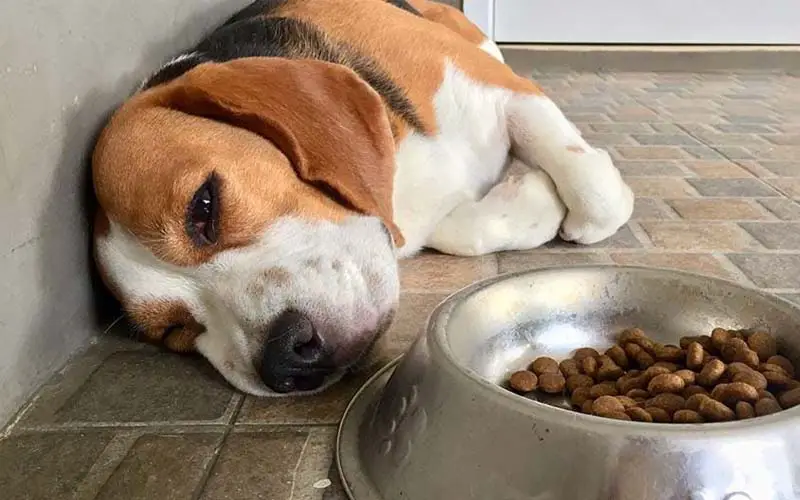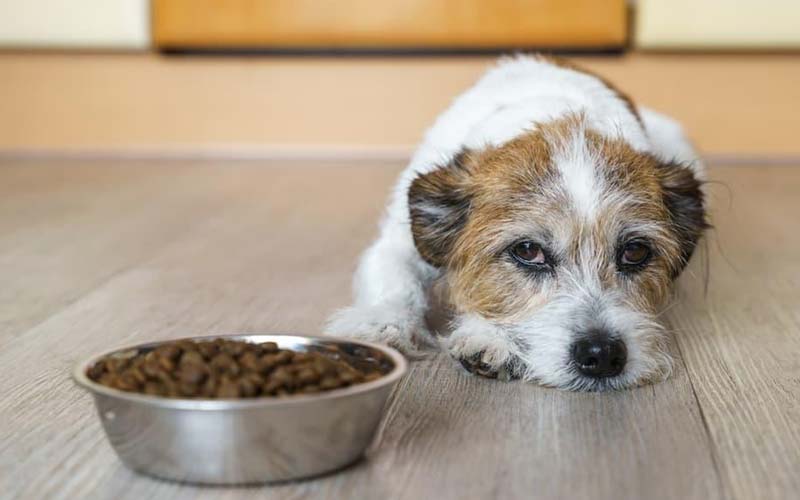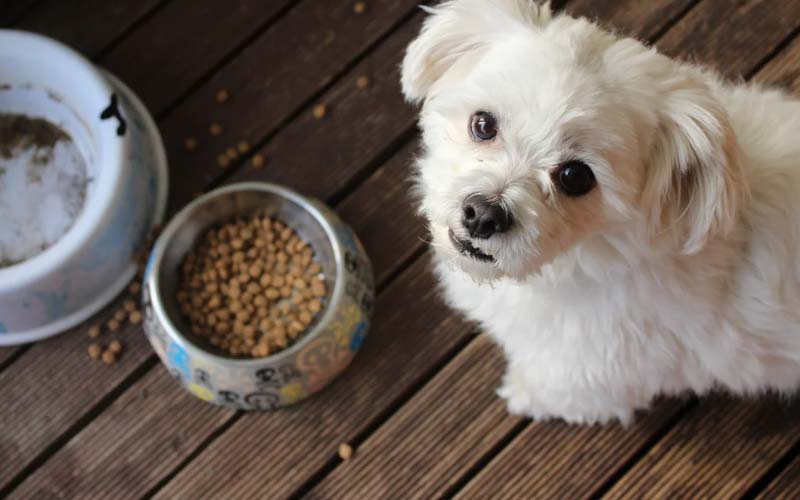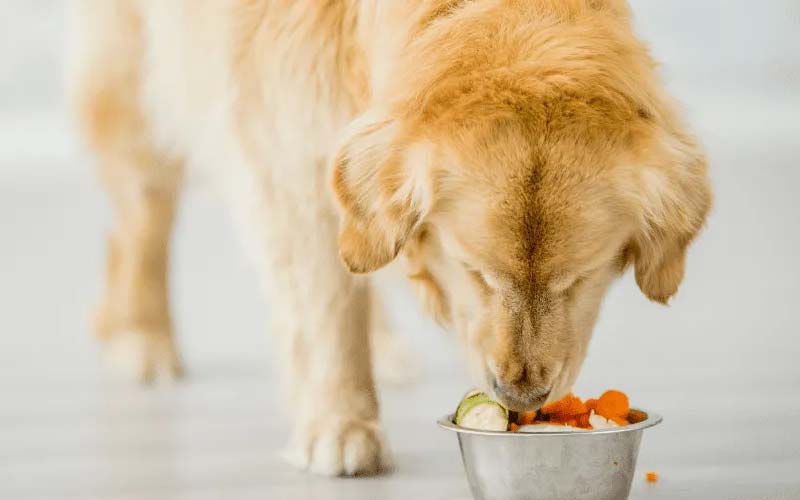As a dog owner, seeing your furry companion struggle with an upset stomach can be concerning. Whether it’s a bout of vomiting, diarrhea, or loss of appetite, gastrointestinal issues are common in dogs and can stem from a variety of causes—ranging from eating something inappropriate to underlying health conditions. Knowing how to respond can make all the difference in ensuring your pet’s comfort and recovery.

Choosing the right foods is one of the most effective ways to soothe your dog’s digestive discomfort. A carefully selected diet can not only alleviate symptoms but also support the healing process. In this article, we’ll explore safe and vet-approved food options for dogs with upset stomachs, highlight what to avoid, and provide practical tips for feeding and recovery. We’ll also discuss when it’s time to seek professional veterinary care.
With the right approach, you can help your dog bounce back quickly while preventing future stomach troubles. Let’s get started on the best ways to care for your pet during this delicate time.
1. Recognizing the Signs of an Upset Stomach
An upset stomach in dogs can manifest through various symptoms, some of which are easily noticeable while others may require closer observation. Recognizing these signs early is crucial for determining whether the issue can be managed at home or if professional veterinary care is needed.
Common Symptoms of an Upset Stomach
Vomiting and Diarrhea
- These are the most obvious indicators of gastrointestinal distress. Vomiting may occur once or multiple times, sometimes accompanied by retching or dry heaving. Diarrhea can vary from soft stools to watery consistency.
- If vomiting or diarrhea occurs infrequently and the dog otherwise seems normal, it may not be cause for alarm.
Loss of Appetite or Decreased Interest in Food
- A dog with an upset stomach often refuses food, even treats. This lack of appetite might indicate nausea or discomfort in the digestive tract.
Excessive Drooling or Licking Their Lips
- Nauseous dogs frequently drool more than usual or lick their lips as a reflex to the sensation of queasiness.
Lethargy or Restlessness
- While some dogs may seem unusually tired or uninterested in activities, others may exhibit restlessness, pacing, or an inability to settle down due to abdominal discomfort.
Gurgling Sounds from the Stomach
- Audible gurgles or rumbling noises from your dog’s abdomen may signal digestive upset or gas build-up.
When to Seek Immediate Veterinary Attention
While many cases of an upset stomach resolve on their own, some symptoms may indicate a more serious issue requiring prompt professional care:
Prolonged Vomiting or Diarrhea
- If symptoms persist for more than 24–48 hours, it could lead to dehydration or signal a deeper underlying problem.
Blood in Vomit or Stool
- The presence of blood—bright red or dark, coffee-ground-like in vomit or tarry stools—warrants immediate attention.
Signs of Dehydration
- Look for dry gums, sunken eyes, or skin that doesn’t bounce back quickly when gently pinched. Dehydration can escalate quickly and become life-threatening.
Severe Lethargy or Signs of Pain
- A dog that is unwilling to move, whining, or showing signs of abdominal pain (e.g., hunched posture, sensitivity to touch) may need urgent care.
Underlying Health Conditions
- Dogs with pre-existing medical issues, such as diabetes or chronic gastrointestinal problems, require extra caution and should see a vet sooner rather than later.
By identifying these symptoms and knowing when to act, you can make informed decisions that help ensure your dog’s health and safety. Early intervention often prevents minor issues from becoming major concerns, giving your furry companion the best chance at a speedy recovery.

2. Understanding the Causes of Stomach Upset in Dogs
An upset stomach in dogs can occur for a variety of reasons, ranging from minor indiscretions to more serious underlying conditions. Identifying the cause is essential for providing appropriate care and preventing future issues. Below are some of the most common culprits behind gastrointestinal distress in dogs.
1. Eating Spoiled Food or Garbage (Dietary Indiscretion)
Dogs are naturally curious and often explore the world with their mouths. Unfortunately, this can lead to them consuming spoiled food, garbage, or even non-food items. These ingestions can irritate the stomach lining, cause blockages, or introduce harmful bacteria that result in vomiting and diarrhea.
2. Sudden Changes in Diet
A rapid switch in your dog’s food, whether it’s a new brand or a different type, can upset their digestive system. Dogs’ stomachs are sensitive to dietary changes, and transitioning too quickly can lead to digestive upset. Always introduce new foods gradually over 7–10 days to minimize this risk.
3. Food Allergies or Intolerances
Some dogs may react negatively to specific ingredients in their diet, such as certain proteins, grains, or additives. These reactions can cause not only gastrointestinal issues but also skin problems and chronic itching. Identifying food allergies often requires trial-and-error testing with the guidance of a veterinarian.
4. Infections or Parasites
Bacterial, viral, or parasitic infections are another common cause of stomach upset. Contaminated water, raw or undercooked food, or exposure to infected animals can introduce pathogens like Giardia or Salmonella. Symptoms in these cases often include persistent diarrhea and other systemic signs like fever or lethargy.
5. Stress or Anxiety
Just like humans, dogs can experience stomach issues as a response to stress or anxiety. Moving to a new home, separation from their owner, or unfamiliar environments can trigger digestive disturbances. Stress-related stomach upset may resolve as your dog acclimates to the change, but soothing measures can help in the interim.
The Importance of Identifying and Addressing the Root Cause
Understanding why your dog has an upset stomach is critical for effective treatment and prevention. Addressing only the symptoms without identifying the cause may lead to recurring issues. For example:
If dietary indiscretion is the cause, secure trash bins and monitor your dog’s outdoor activities.
For food allergies, work with your veterinarian to find a hypoallergenic or elimination diet.
When stress is the culprit, implementing calming routines and providing a safe environment can make a big difference.
In cases where the cause is unclear or symptoms persist, consulting a veterinarian is essential to rule out serious conditions and develop a tailored treatment plan. By addressing the underlying reason for your dog’s upset stomach, you can help ensure their long-term health and well-being.

3. The Best Foods for Soothing an Upset Stomach
When your dog is experiencing an upset stomach, feeding them the right foods can promote recovery while minimizing further irritation. Bland, easily digestible options are often recommended to soothe the digestive system and restore normal function. Below are some of the best food choices for a dog with stomach issues, along with preparation and feeding tips.
A. Bland Diet Basics
Boiled Chicken and Rice
Why It Works: This classic remedy is gentle on the stomach, low in fat, and easy to digest.
Preparation Tips:
- Use boneless, skinless chicken breast.
- Boil the chicken thoroughly, avoiding any seasoning, oils, or additives.
- Cook plain white rice until soft and slightly overdone to make it easier for your dog to digest. Avoid brown rice, as its higher fiber content can be harder on a sensitive stomach.
Portion Guidelines:
- Feed small, frequent meals. Start with 2–3 tablespoons of the mixture for small dogs or ¼–½ cup for larger dogs, every 2–3 hours.
- Adjust portions based on your dog’s size and appetite.
Mashed Pumpkin
Why It Works: Pumpkin is rich in fiber, which can help regulate digestion, soothe an irritated stomach, and firm up loose stools.
Preparation Tips:
- Use plain, canned pumpkin—ensure it’s 100% pumpkin with no added sugars, spices, or preservatives.
- Avoid pumpkin pie filling, as it often contains harmful ingredients like nutmeg.
- Serve 1–4 tablespoons depending on your dog’s size, mixed with their food or on its own.
B. Other Gentle Food Options
Bone Broth
Why It Works: Bone broth is a nutrient-rich liquid that provides hydration and essential minerals, making it ideal for dogs with reduced appetites.
Preparation Tips:
- Make bone broth by simmering bones (chicken or beef) in water for several hours, skimming fat and removing any small bone fragments before serving.
- Avoid onions, garlic, or excessive salt, as these are toxic to dogs.
Plain Scrambled Eggs
Why It Works: Eggs are a great source of protein and are gentle on the stomach.
Preparation Tips:
- Scramble eggs without any added butter, oil, or seasonings.
- Serve in small portions—1 egg for small dogs or 2–3 eggs for larger dogs, depending on their appetite.
Boiled, Unseasoned Potatoes
Why It Works: Potatoes provide an easily digestible source of carbohydrates and energy.
Preparation Tips:
- Boil plain white or sweet potatoes until soft.
- Remove the skin before mashing or chopping, as the skin can be harder to digest.
- Serve in small portions as a standalone meal or mixed with other bland foods.
Unsweetened Yogurt or Probiotics
Why It Works: Yogurt contains beneficial bacteria that help restore balance in the gut and support digestion. Probiotics can be particularly helpful after episodes of diarrhea.
Preparation Tips:
- Choose plain, unsweetened yogurt (Greek yogurt is a good option).
- Serve a small amount—1–2 teaspoons for small dogs or 1–2 tablespoons for larger dogs.
- If your dog is lactose intolerant, opt for a vet-approved canine probiotic supplement instead.
By incorporating these gentle food options into your dog’s temporary diet, you can help soothe their digestive system and promote faster recovery. Always start with small portions and monitor your dog’s response before increasing quantities or introducing new foods. If symptoms persist or worsen, consult a veterinarian promptly for further guidance.

4. Foods to Avoid When Your Dog Has an Upset Stomach
While it’s essential to choose soothing and easily digestible foods for a dog with an upset stomach, it’s equally important to avoid feeding items that could worsen their symptoms or cause additional harm. Some foods are not only difficult for dogs to digest but can also be outright toxic. Here’s a list of foods to steer clear of and why they should be avoided.
1. Spicy, Greasy, or Fatty Foods
Examples: Table scraps, fried foods, heavily seasoned meats, and high-fat treats.
Why to Avoid:
- These foods can irritate the stomach lining, leading to increased nausea, vomiting, or diarrhea.
- High-fat foods may trigger pancreatitis, a painful and potentially life-threatening inflammation of the pancreas, especially in breeds predisposed to this condition.
2. Toxic Foods
Some common household foods are toxic to dogs and should never be given, especially when they are already unwell.
Chocolate: Contains theobromine, which can cause vomiting, diarrhea, seizures, or even death in severe cases.
Grapes and Raisins: Even small amounts can lead to kidney failure in dogs.
Onions and Garlic: These can damage a dog’s red blood cells, leading to anemia.
Why to Avoid:
- These foods can have immediate toxic effects or compound an already sensitive digestive system, making recovery more difficult.
3. Dairy Products (Unless Your Dog Tolerates Them)
Examples: Milk, cheese, ice cream, or other dairy-based products.
Why to Avoid:
- Many dogs are lactose intolerant, meaning they lack the enzyme needed to break down lactose, the sugar in milk. This can result in bloating, gas, diarrhea, or additional stomach upset.
- If you’re considering dairy to aid digestion (like plain yogurt), make sure it’s unsweetened and lactose-free or approved by your vet.
Why These Foods Can Harm a Dog’s Digestive System
When a dog’s stomach is already upset, their digestive system is more vulnerable. Feeding inappropriate foods can exacerbate inflammation, increase intestinal distress, and delay recovery.
- Irritants like spices or fats overstimulate the stomach’s acid production, worsening nausea or diarrhea.
- Toxins and allergens can overload the body’s detoxification processes, leading to severe complications.
- Difficult-to-digest foods like dairy add unnecessary strain to an already compromised digestive system.
To ensure your dog recovers quickly and safely, stick to the recommended bland diet and consult your veterinarian if you’re uncertain about what’s safe to feed. Avoiding harmful foods not only supports healing but also protects your pet from potentially life-threatening complications.

5. Feeding Guidelines During Recovery
Once your dog’s upset stomach begins to improve, it’s essential to follow the right feeding approach to ensure a smooth recovery and prevent any setbacks. The key is to avoid overwhelming your dog’s digestive system while gradually reintroducing their regular diet. Here are the best practices to follow during your dog’s recovery phase.
1. Start with Small, Frequent Meals
Why It Works: After an upset stomach, your dog’s digestive system may still be sensitive. Offering small, frequent meals prevents overloading the stomach and allows for easier digestion.
How to Do It:
- Start with small portions, around 2–3 tablespoons for small dogs or ¼ cup for larger dogs.
- Feed every 3–4 hours to ensure your dog’s stomach remains settled without being overwhelmed.
- Make sure each meal is bland, using foods like boiled chicken and rice, pumpkin, or scrambled eggs.
2. Monitor for Signs of Improvement
Why It’s Important: Monitoring your dog’s condition closely helps ensure the recovery process is on track. Look for positive changes in your dog’s appetite, energy level, and stool consistency.
What to Look For:
- Return of Appetite: As your dog begins to feel better, they will show interest in food again. If they remain uninterested after 48 hours, it’s time to consult your veterinarian.
- Normal Stool Consistency: Gradually, you should notice your dog’s stool firming up. If diarrhea persists, it could indicate an ongoing problem that requires professional care.
- Increased Energy: A dog recovering from an upset stomach should become more active and alert. If lethargy continues, it may signal further gastrointestinal issues.
3. Gradually Transition Back to Regular Food
Why It Works: Sudden reintroduction of your dog’s regular food can overwhelm the digestive system, causing a relapse of symptoms. Transitioning slowly allows your dog’s stomach to adjust without undue stress.
How to Do It:
- Start Mixing: Begin by mixing small portions of your dog’s usual food with the bland diet. For example, add about 25% of their regular food to the bland food while keeping the remainder as the bland mix.
- Increase Regular Food Gradually: Over the next 3–5 days, increase the proportion of regular food, while decreasing the bland food. By day 5, you should be feeding only their usual food if everything is going well.
- Monitor Closely: Throughout this process, continue to watch for any signs of digestive distress, such as loose stools or vomiting. If these occur, revert to the bland diet and consult your vet if necessary.
By following these feeding guidelines during your dog’s recovery, you help ensure that their digestive system heals properly and gradually adjusts back to its normal routine. Patience and careful observation are key during this phase, allowing your dog to return to their regular eating habits without putting unnecessary strain on their stomach. If at any point you’re concerned about the recovery process, don’t hesitate to consult your veterinarian for additional guidance.

6. Preventing Future Upset Stomachs
Once your dog has recovered from an upset stomach, it’s essential to take proactive steps to maintain their digestive health and minimize the likelihood of future issues. With the right care and preventative measures, you can help your dog avoid unnecessary gastrointestinal distress. Here are some key tips for maintaining digestive health and preventing upset stomachs in the future.
1. Consistent Feeding Routines
Why It Works: Establishing a regular feeding schedule helps regulate your dog’s digestion and keeps their stomach from becoming too empty or too full.
How to Do It:
- Feed your dog at the same time each day, ideally with two or three meals depending on their age and breed.
- Avoid feeding large meals that could overwhelm the digestive system, especially for puppies or dogs prone to bloating.
- If you need to switch foods, transition gradually over 7–10 days to allow your dog’s digestive system to adjust.
2. Avoiding Table Scraps and Inappropriate Treats
Why It Works: Table scraps and certain treats (especially those high in fat, sugar, or spices) can be difficult for dogs to digest, potentially leading to upset stomachs.
How to Do It:
- Stick to dog-approved treats and avoid giving your dog human food, particularly fatty, greasy, or spicy items.
- Be cautious with common “treats” like bones or rawhide, which can cause gastrointestinal upset or even choking hazards.
- If you’re offering special treats or snacks, make sure they are designed specifically for dogs to ensure they are safe and easy to digest.
3. Supervising Outdoor Activities to Prevent Scavenging
Why It Works: Dogs are often curious about their environment and may ingest things they shouldn’t, including spoiled food, trash, or harmful plants.
How to Do It:
- Keep a close eye on your dog during outdoor activities, especially if they are off-leash.
- Discourage scavenging by redirecting them to safe toys or treats and monitoring their behavior while walking or playing in unfamiliar areas.
- Consider using a basket muzzle if your dog is particularly prone to eating things they shouldn’t while outdoors.
4. Regular Deworming and Check-Ups with a Veterinarian
Why It Works: Parasitic infections can cause digestive upset in dogs, so maintaining a regular deworming schedule is crucial for digestive health.
How to Do It:
- Work with your vet to establish a routine deworming schedule based on your dog’s age, lifestyle, and exposure risk.
- Schedule regular check-ups to catch any underlying health issues that could affect your dog’s stomach, such as food allergies, gastrointestinal diseases, or infections.
- Ensure your dog is up-to-date on all necessary vaccinations to prevent viral infections that could lead to digestive upset.
5. Importance of a High-Quality Diet Tailored to Your Dog’s Needs
Why It Works: A high-quality, well-balanced diet provides essential nutrients and supports the overall health of your dog’s digestive system.
How to Do It:
- Choose a dog food that meets your dog’s specific needs based on their age, breed, size, and activity level.
- Look for foods with easily digestible ingredients like high-quality proteins and simple carbohydrates.
- Avoid foods with artificial additives, fillers, and excessive preservatives, which can irritate the stomach and affect long-term health.
- If your dog has specific dietary sensitivities, consult with your vet to select an appropriate food or consider preparing homemade meals with proper guidance.
By following these preventive measures, you can significantly reduce the risk of future upset stomachs and maintain your dog’s digestive health. Consistency in their diet, behavior, and health care routine plays a critical role in ensuring they stay happy and comfortable. Regularly monitoring their habits and providing proper care can help your dog thrive and avoid unnecessary gastrointestinal discomfort.

7. When to Consult a Veterinarian
While many cases of upset stomach in dogs can be managed at home with a bland diet and proper care, there are certain situations where professional intervention is necessary. Recognizing when to seek veterinary care is crucial to preventing serious complications and ensuring your dog receives the appropriate treatment. Here are scenarios where you should consult a veterinarian for further evaluation and care.
1. Symptoms Persisting Beyond 48 Hours
Why It’s a Concern: If your dog’s upset stomach lasts more than 48 hours, it could be a sign of an underlying issue that requires medical attention.
What to Look For:
Vomiting or diarrhea that doesn’t improve or worsens after a couple of days.
- Decreased appetite or refusal to eat for an extended period.
- If your dog is not showing signs of improvement or is not drinking enough water, it could lead to dehydration or more serious complications.
Why See a Vet: Persistent symptoms could indicate a more serious condition like infections, parasites, food allergies, or gastrointestinal disorders, which require veterinary diagnosis and treatment.
2. Severe Lethargy, Dehydration, or Signs of Pain
Why It’s a Concern: Severe lethargy or signs of discomfort may indicate a more serious condition that requires prompt veterinary attention.
What to Look For:
- Your dog is unusually tired, weak, or unresponsive to their environment.
- Noticeable dehydration (dry gums, sunken eyes, excessive panting) despite efforts to hydrate.
- Signs of pain such as whimpering, excessive licking of the abdomen, or a hunched posture.
Why See a Vet: These symptoms can indicate severe dehydration, infection, or even organ involvement, such as pancreatitis, and may require IV fluids, pain management, or diagnostic tests to identify the cause.
3. Chronic or Recurring Stomach Issues
Why It’s a Concern: If your dog frequently experiences stomach problems, it may indicate an ongoing condition that requires diagnosis and long-term management.
What to Look For:
- Your dog frequently has vomiting, diarrhea, or shows signs of digestive discomfort.
- The symptoms seem to come and go without an apparent cause.
- Chronic issues like bloating, excessive gas, or poor digestion despite a well-managed diet.
Why See a Vet: Chronic or recurring stomach problems could indicate conditions like food intolerances, inflammatory bowel disease (IBD), or gastrointestinal infections, which require professional treatment and potentially ongoing care.
Building a Relationship with a Trusted Veterinarian for Long-Term Care
Why It’s Important: Establishing a good relationship with your veterinarian not only ensures that you have a trusted professional to turn to during health concerns but also helps with preventive care and overall well-being.
How to Do It:
- Schedule regular check-ups even when your dog isn’t sick to monitor their health and detect issues early.
- Work with your veterinarian to develop a health plan tailored to your dog’s specific needs, especially if they have dietary sensitivities or a history of gastrointestinal problems.
- Build open communication with your vet to understand what is normal for your dog and when something may be concerning.
By knowing when to seek veterinary care and establishing a relationship with a trusted professional, you can ensure that your dog receives the best possible care for both immediate and long-term health. Early intervention and consistent care are key to maintaining your dog’s well-being and addressing any potential issues before they become more serious. If in doubt, always err on the side of caution and consult your veterinarian for guidance.

Conclusion
Dealing with a dog’s upset stomach can be a stressful experience for both you and your pet, but with the right knowledge and care, you can help your dog recover swiftly and comfortably. In this article, we’ve explored key strategies for managing an upset stomach, from recognizing the signs and understanding the causes to feeding your dog the right foods and knowing when to consult a veterinarian.
To recap, starting with a bland diet, avoiding harmful foods, and gradually reintroducing regular meals are crucial steps to help soothe your dog’s digestive distress. Preventative measures such as consistent feeding routines, avoiding table scraps, and regular check-ups with a veterinarian play an essential role in maintaining long-term digestive health. And when in doubt, seeking professional care is always a wise decision, especially if symptoms persist or worsen.
By being proactive and attentive to your dog’s digestive health, you can help prevent future issues and ensure they remain happy and healthy. If your dog is experiencing ongoing stomach problems, don’t hesitate to consult your veterinarian for personalized advice and care. Taking these steps now will not only improve your dog’s well-being but also strengthen the bond you share with your furry companion.
Your dog’s health is worth every effort, so be attentive, act swiftly, and prioritize their comfort on the path to recovery.